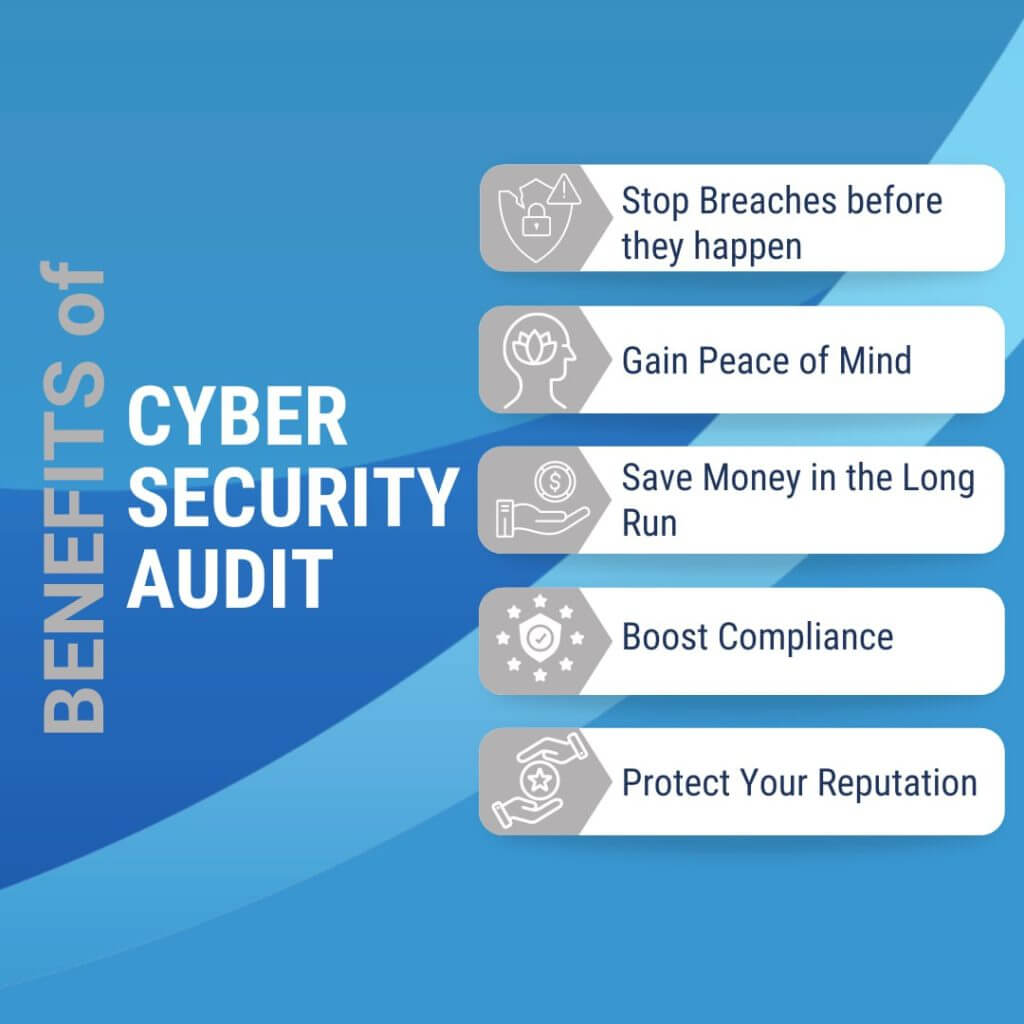Sleep soundly, invest wisely: Detailed cyber audits for secure success.


A Cyber Security Audit is an in-depth examination of an organisation’s IT systems, networks and data to identify weaknesses and potential threats that hackers could exploit. Think of it as a health check for your online security, pinpointing areas where you might be exposed and providing a roadmap for improvement.
The objective is to verify the integrity of information systems and confirm compliance with applicable laws and standards.
Nowadays, cyberattacks are a constant threat, and businesses of all sizes are targets. A single breach can have devastating consequences, costing you money, data, and even your reputation.
A cybersecurity audit acts as a proactive shield, helping you identify and address vulnerabilities before attackers do. It’s an investment in your business’s future, providing peace of mind and the confidence to operate securely in the digital landscape.



Here are 5 signs you might need a cybersecurity audit:
There are two main types of Cyber Security Audits:
Benefits of External Audit include:
Benefits of Internal Audit include:
A cybersecurity audit typically follows three phases:
A SOC (Security Operations Centre) audit specifically assesses the effectiveness of your Security Operations Centre, the team responsible for ongoing threat detection, incident response, and security monitoring. It evaluates how well your SOC team identifies, analyses, and responds to cyber threats. Think of it as an audit for your security team’s performance and processes.
The “how” depends on your chosen approach:
Costs vary depending on the scope, complexity, and chosen provider. Internal audits typically involve internal resources, so costs are lower. External audits can range from a few thousand dollars for smaller assessments to tens of thousands for comprehensive engagements. Remember, investing in a security audit is an investment in your business’s future, potentially saving you much more in the long run.
Cybersecurity audits can cover a wide range, depending on your specific needs, but typically focus on:
Regular audits are crucial for maintaining a strong security posture. Experts recommend:
Remember, security is an ongoing process, and regular audits are vital for staying ahead of threats and protecting your valuable data and assets.